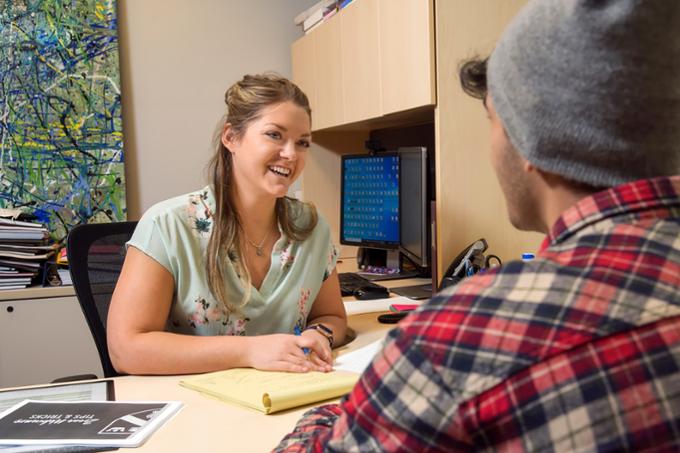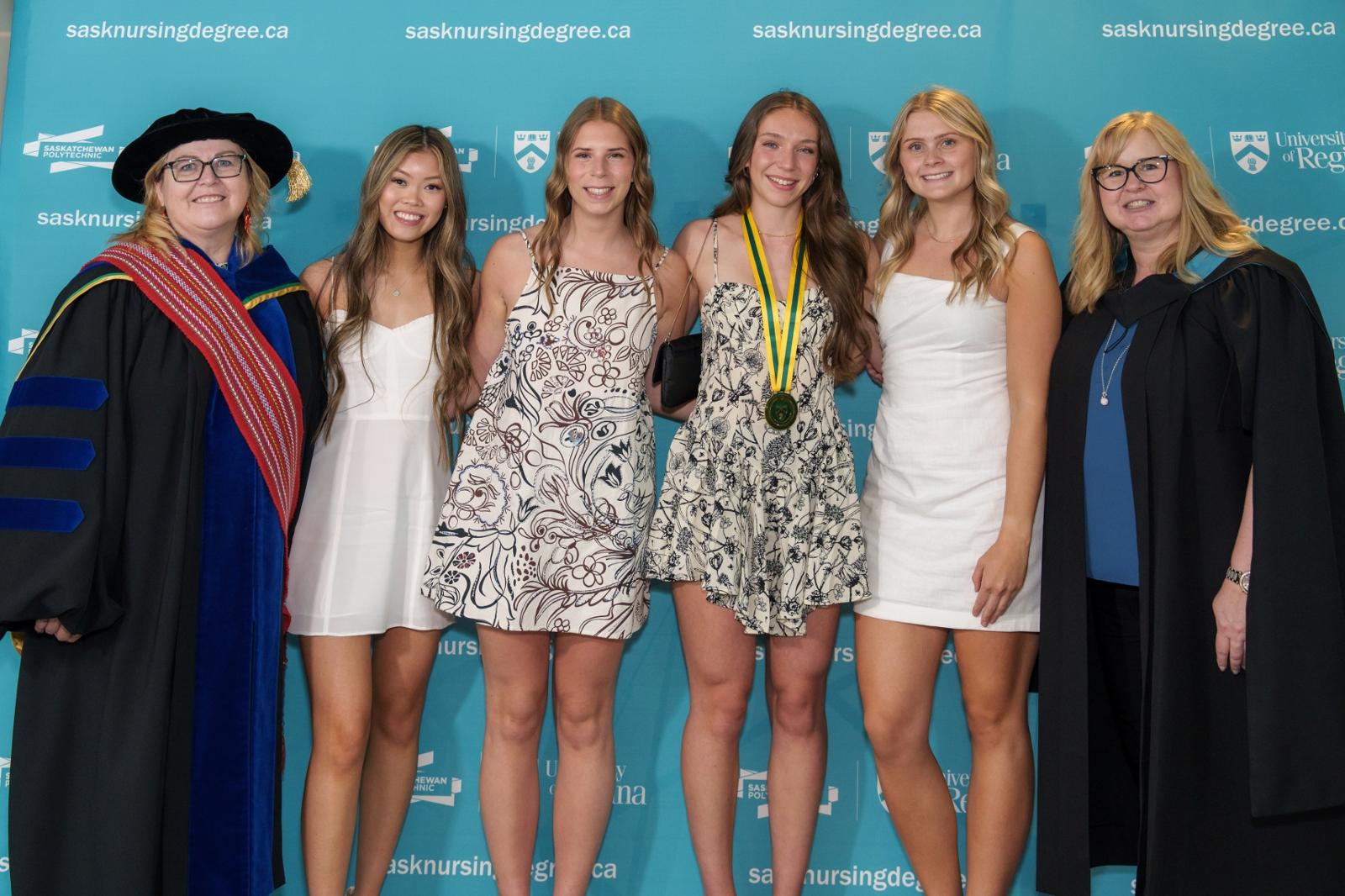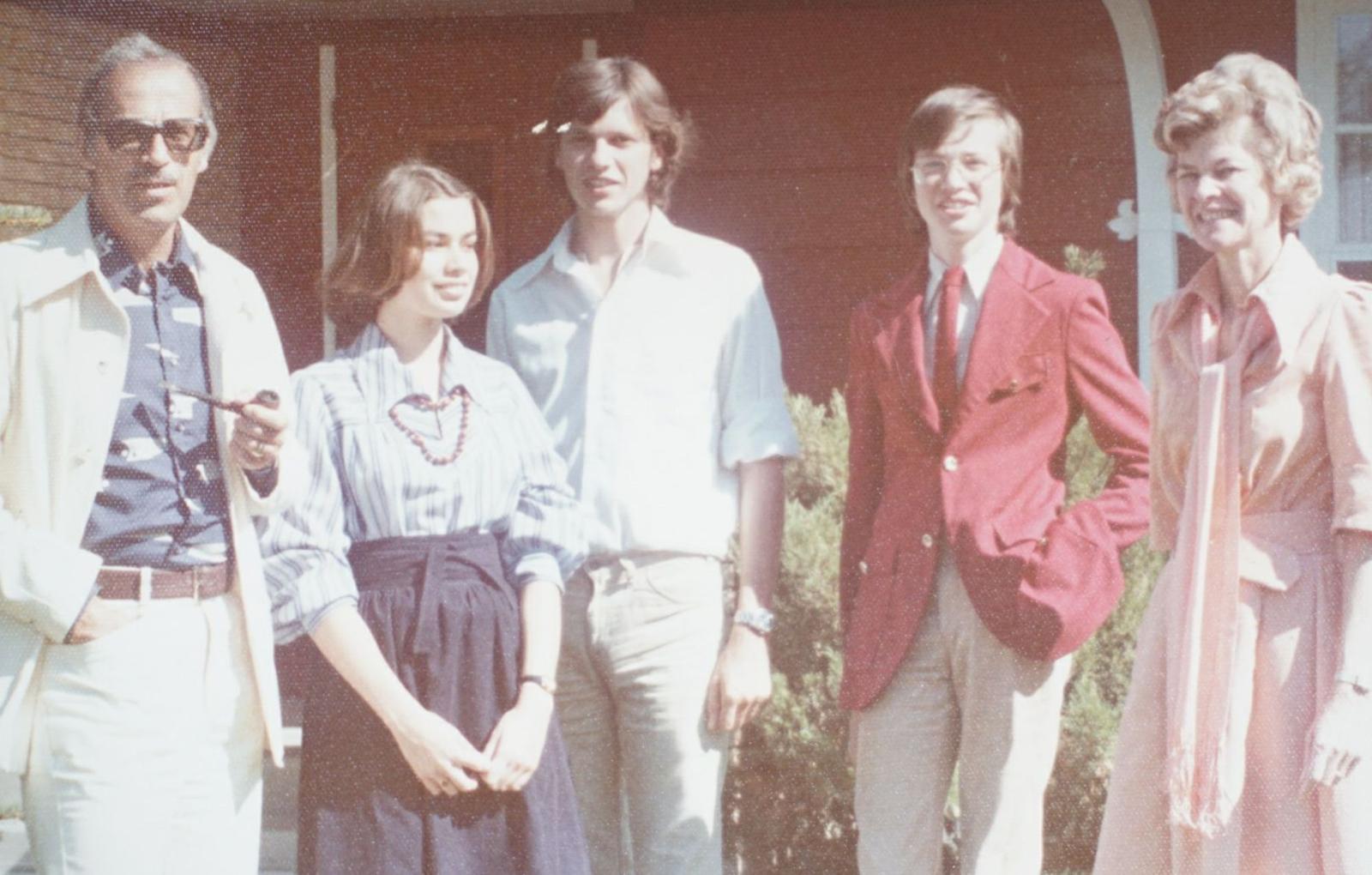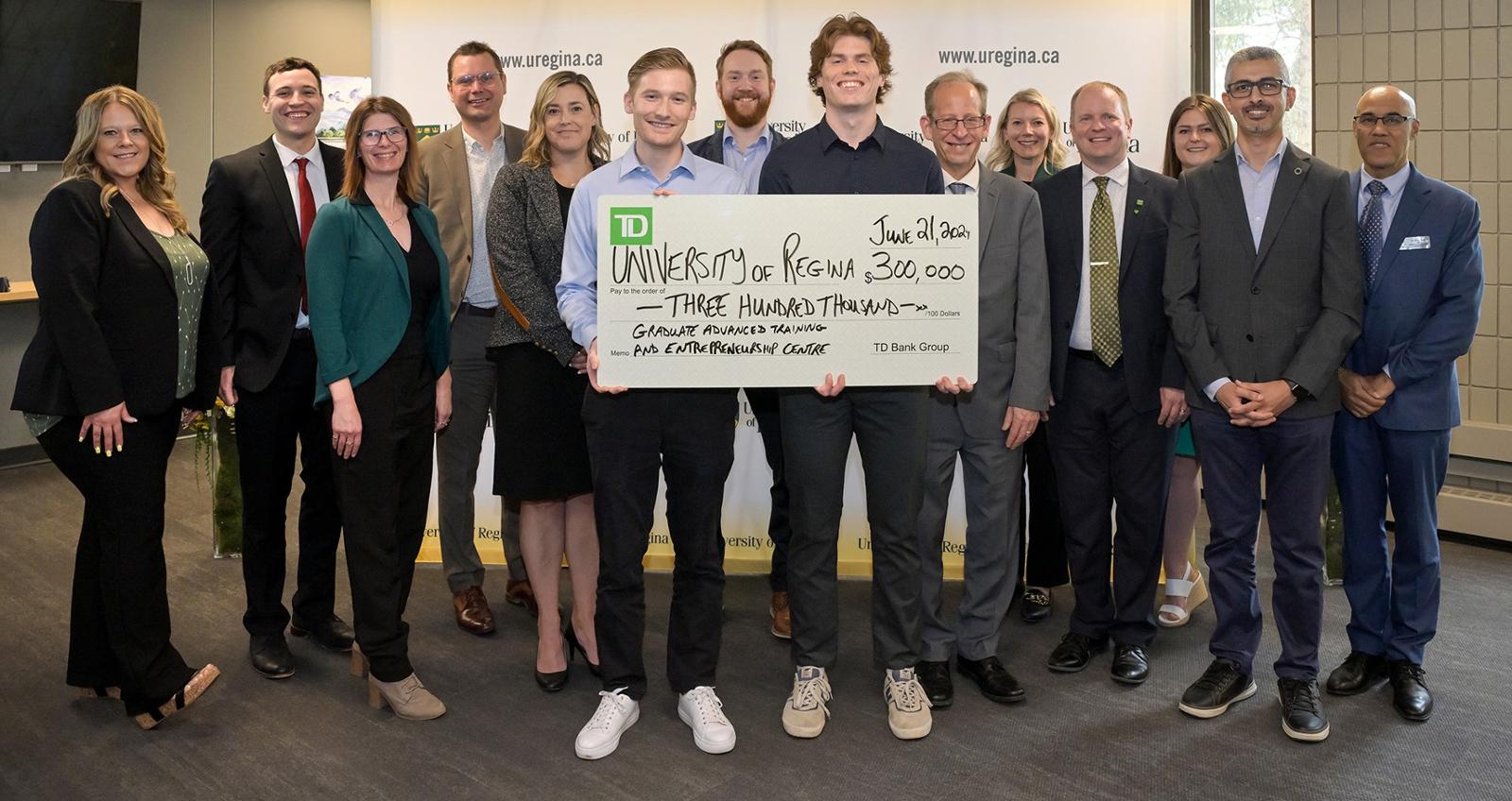Winter 2023 Reading Week, February 20 – 25, is an opportunity for students to recharge, catch up on course work, review and/or complete assignments, and prepare for upcoming exams.
Alexandria Li
We caught up with Alexandria Li, one of the U of R’s Student Success Centre’s (SSC) academic advisors, to get some tips on how students can use this time to their best advantage.
As we head into Reading Week, and the last half of the winter term, what would be your #1 bit of advice to students wanting to improve or maintain their grades?
Focus on your learning style and what works best for you. If you’re a visual learner, try using different coloured pens or flash cards. If you’re an auditory learner, try explaining what you learned in class to friends or family (if you can explain it well, you probably understand the material). If you’re a hands-on learner, try some experiential learning through the Centre for Experiential and Service Learning (CESL). If nothing seems to be working – switch it up and try something new. And don’t be afraid to ask for help!
As mental health and wellness are major determinants of student success, why not advise students to take a total break from their studies and to forget about their classes and assignments for this one week?
Balance is key. Although taking the whole week off can seem like a great idea at the time, it can make getting back into the swing of things after the break a little challenging. Instead, try alternating academic and non-academic activities so that you can continue to do the things you want to do while also setting yourself up for academic success after the break.
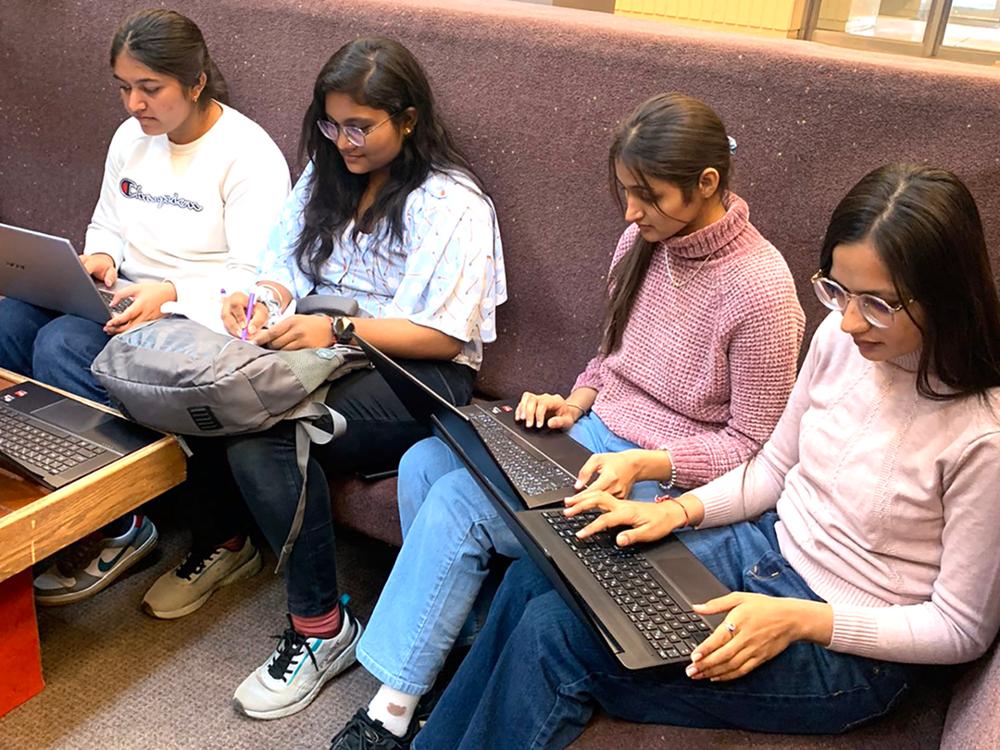
What are some practical tips for students studying for an exam?
Review your course content regularly and in smaller chunks of time (rather than cramming right before the exam) as this can help you to better retain the information. Pay attention to what your instructors spend extra time on in class as there’s a good chance they’ve already told you what is likely to appear on the exam. A little stress is normal, but don’t forget to eat, sleep, and hydrate.
What tips can you provide for students trying to complete written assignments during Reading Week?
Start early, take breaks, edit, and proofread. Make sure that you review the assignment’s instructions to ensure that you’ve met all of the requirements. Don’t forget to cite sources!
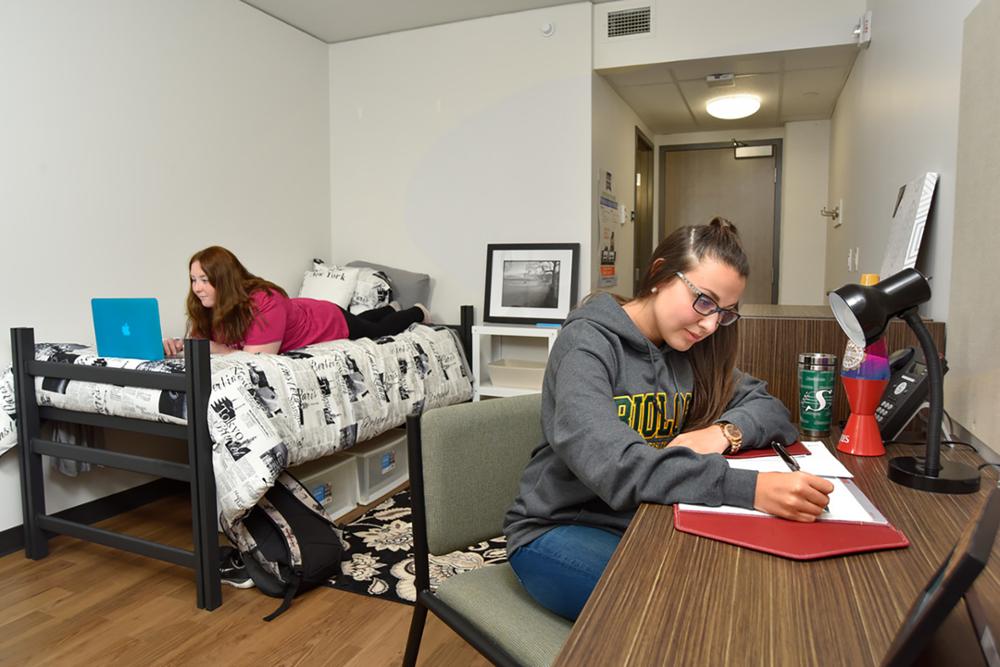
Credit: University Photography Services
What are some of the programs and services the Student Success Centre provides students to help them improve their academic skills and how can they access them?
The SSC has a number of workshops, tutoring options, and learning skills appointments available if you need extra support. We can assist with topics such as time management, exam anxiety, and note taking, as well as many others.
If a student is struggling academically, where can they get help?
Start with your instructors and teaching assistants. They’re the people best suited to answer your questions about course-specific content. If you need additional supports, your academic advisors are a great resource and can connect you with tutors, learning skills advisors, and other supports like accessibility officers.
Focus on your learning style and what works best for you... And don’t be afraid to ask for help!
Alexandria Li, Academic Advisor, Student Success Centre
Anything else you would like students to know about getting the most out of their U of R experience?
Enjoy it! Challenge yourself by meeting new people, learning new subjects, and trying new experiences. If you’re not yet sure what you want to do after university, that’s okay! We have a number of career counselling resources that can help you figure it out. If you know exactly what you want to do after, that’s great, too! Set a few goals for yourself and determine what needs to be done in order to achieve those goals. No matter the size of your goal, make sure your goals are SMART – Specific, Measurable, Actionable, Realistic, and Timely – as that’s the best way to determine your next steps and get you to where you want to go!
Dr. Jenny Keller
We also asked Dr. Jenny Keller, manager Student Mental Health, for any advice she would give students who may be feeling stressed out or overwhelmed at this time of year:
“Take time to hit the reset button: Take care of your physical wellness and make a plan to get organized and set achievable goals. Student Mental Health has partnered with Student Success and are offering 50-minute seminars on relevant topics for this time of the semester: e.g. Surfing through Exam Stress, Recharging your Wellness Battery, and Motivation: Navigating the Traps.
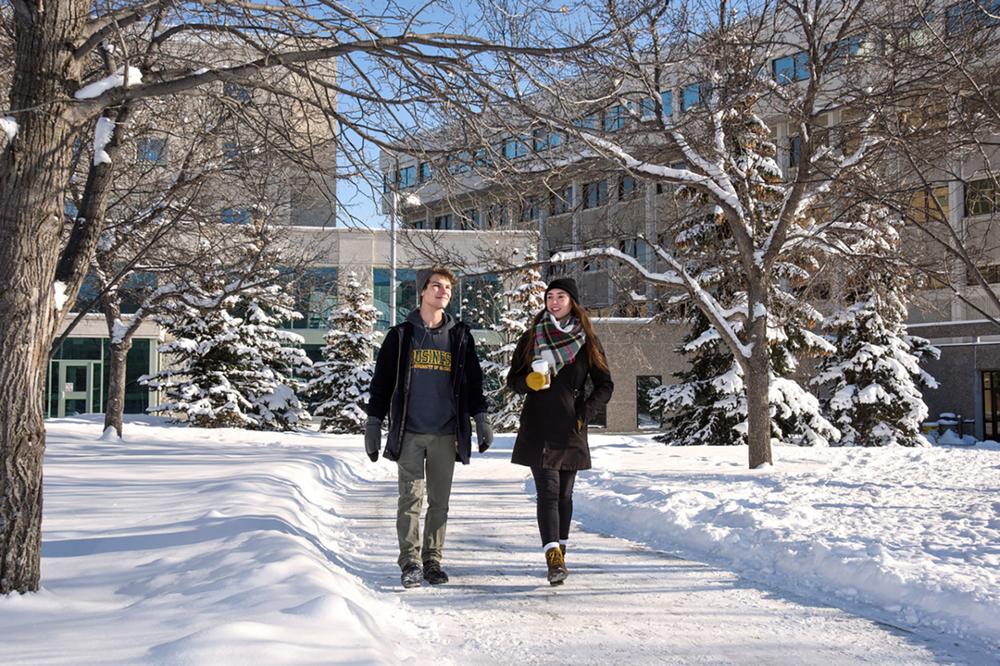
Don’t forget to take breaks and get some fresh air! Credit: University Photography Services
For students who are struggling with their mental health our Student Mental Health website provides information on how to access our services.
Banner photo: University Photography Services
About the University of Regina
Set in the heart of the Canadian prairies we are a comprehensive, mid-sized university where the opportunities are as limitless as the horizon. Our campuses are on Treaty 4 and 6 - the territories of the nêhiyawak, Anihšināpēk, Dakota, Lakota, and Nakoda peoples, and the homeland of the Michif/Métis nation. It is our responsibility to strengthen relationships with Indigenous communities to build a more inclusive future for all. Our three federated colleges, 10 faculties, 25 academic departments, and 18 research centres foster innovative research with practical and theoretical applications. We are committed to cultivating the potential of our 16,000 students and supporting their health and well-being. We take learning beyond the classroom through work and volunteer experiences to develop career-ready graduates.
Let’s go far, together.
